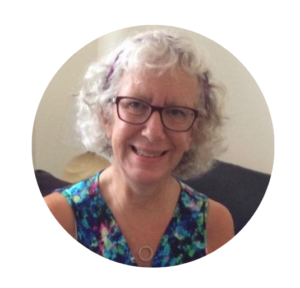He sat by the bed in the ICU and watched my vital signs stay steady.
He sent a daily email to my Framily (friends and family – the family you choose) detailing my condition and progress for a solid month.
He prepared visitors for what they would see -scary post-op swelling and discoloration.
He filled out work-related paperwork and took over all the household responsibilities.
And I knew none of this – he did it all alone – while I slept and healed. To this day, I only know what the first two weeks were like from his recounting and (eventually) from reading those daily emails. I will never truly understand. I know he was afraid. I know he suffered when I was in pain. I know that he held onto hope and fought dark thoughts. His strength during that time awes me.
As I regained awareness, Rick was my rock, my realist and my reporter. He shifted from the lonely vigil to begin the roller coaster partnership that we continually adjust and revise. Once I was out of ICU, I began to make sense of what had happened to me – first getting a handle on how much time had passed. But it was when we moved to Spaulding Rehab in Charlestown, MA, that I could take an active role. We were so fortunate that Rick was able to be with me so much. He slept on the couch, went to therapies with me, kept me company, and brought in the mail. He was beside me and behind me, and I depended on his support. I remember putting my arms around him and saying, “This is bringing us even closer, isn’t it?” And it did, and it has. During the two weeks at rehab, the talking we did helped us build the rhythms we would need for the next leg of the journey.
When I was out of rehab and at home, I realized everything landed on his shoulders. Rick felt wholly responsible for my safety and well-being. He brought me food, communicated with everyone, and worried – a lot. It led to a funny scene that we refer to as “Beth’s Moral Dilemma.” When I was in the bedroom, I had to walk past the top of the stairs to get anywhere. I was very unsteady on my feet, so Rick asked me to promise that I wouldn’t get up without calling him. I made that promise – and I am a woman who takes promises very seriously. So, one night, early on, I woke up needing to go to the bathroom. I called and called, but there was no response. There I was, with the choice of breaking my promise or wetting the bed. The bed stayed dry, but I felt profound guilt. Even though he had checked on me ten minutes earlier and I’d been sound asleep, that was the last time Rick used headphones for a very long time! It provided some comic relief – and still does.
Humor was essential in my recovery. It has always been part of our bond, but it took on a new role in the recovery period – providing respite from all the intensity of our journey.
Rick had to make adjustments repeatedly. I wanted everything to be “normal” NOW. He had to judge when to push and when to hold me back. Neither of us knew what defined my limits – we figured it out on the fly.
There are moments that I remember vividly – things he said and did that helped so much:
He sat in a steamy bathroom, dripping with sweat, so I could feel safe taking my first independent shower.
He said to visitors, “She can’t hear both of you at the same time. She can’t walk and listen simultaneously.”
He took me for a trial drive in a parking lot. I felt like I was seventeen and practicing for my license before my driving evaluation.
He held his breath and handed his phone number to the first of my friends who offered to take me to lunch without him.
Encouraging and understanding, he held me while I cried – and before then, when I couldn’t cry.
He timed my exercise reps and took short, then longer, walks with me.
When he took me to the school picnic, he worried that it would be too much, and acknowledged that he had a harder time than me.
For three months, Rick was my chauffeur, my cheerleader, my coach, my chef and my protector – living his life centered on my well-being and my recovery. As survivors, our caretakers, especially my Rick, do so much without recognition or support. We were together for twenty-five years when my aneurysm ruptured, but neither of us really understood the depth of it all until this experience. He put everything aside for me, and I am so grateful. I feel so lucky to have him as a partner, and that I was able to come back to fulfill my role in our partnership. Rick learned to appreciate my network of support and to trust and rely on them. I learned that there is no limit to his love, and I feel it every minute of every day.
I know that all caregiving journeys are different, and that not all have the blessed outcome that Rick and I experienced. In writing this piece, I have arrived at a new place of gratitude for my outcomes, but I want to tell you all that your care is SO important to your loved one. You are giving an immeasurable gift, no matter where your journey ends. And so, I close with deep gratitude and compassion for you all.
Click the photo to learn more about Beth Losk.

